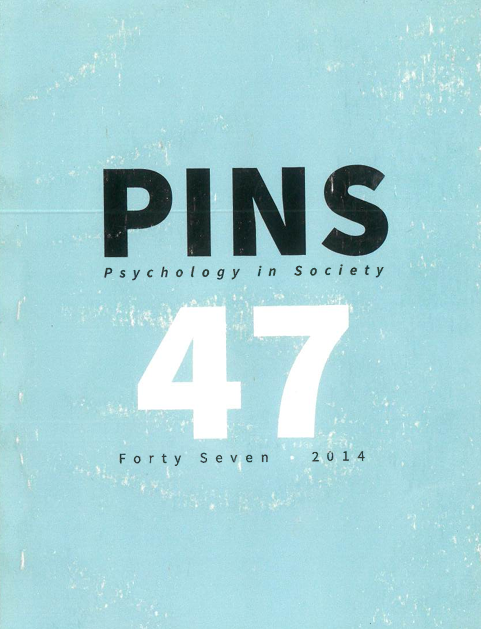Creating decent work for all
DOI:
https://doi.org/10.17159/2309-8708/2014/n47a10Abstract
Carr, S C, MacLachlan, M & Furnham, A (eds) (2012)
Humanitarian work psychology.
Houndmills: Palgrave Macmillan.
ISBN 978-0-230-27545-4.
Pages xxiii + 359
Up until very recently, psychology’s contribution to humanitarian work has been insufficient and modest. Humanitarian work psychology presents a new speciality within the field of Industrial and Organisational (I/O) psychology that focuses on humanitarian work. The book provides compelling arguments for organising humanitarian work to meet humanitarian ends. Humanitarian work psychology is the application of I/O psychology to humanitarian issues with a specific focus on developing a psychology that promotes humanitarian work. From both an ethical and practical perspective, humanitarian work psychology promotes humanistic as well as humanitarian ends including the United Nations Millennium Development Goal of reducing world poverty by 50% by 2015 (Annan, 2000). Humanitarian work psychology is in every way invested in the promotion, creation and maintenance of decent work for all.
Downloads
Downloads
Published
How to Cite
Issue
Section
License
This journal is an open access journal, and the authors' and journal should be properly acknowledged, when works are cited.
Authors may use the publishers version for teaching purposes, in books, theses, dissertations, conferences and conference papers.
A copy of the authors’ publishers version may also be hosted on the following websites:
- Non-commercial personal homepage or blog.
- Institutional webpage.
- Authors Institutional Repository.
The following notice should accompany such a posting on the website: “This is an electronic version of an article published in PINS, Volume XXX, number XXX, pages XXX–XXX”, DOI. Authors should also supply a hyperlink to the original paper or indicate where the original paper (http://www.journals.ac.za/index.php/pins) may be found.
Authors publishers version, affiliated with the Stellenbosch University will be automatically deposited in the University’s’ Institutional Repository SUNScholar.
Articles as a whole, may not be re-published with another journal.
The copyright of the article(s) lies with the author(s).
The copyright of the journal lies with PINS-psychology in Society.
The following license applies:
Attribution CC BY-NC-ND 4.0 - https://creativecommons.org/licenses/by-nc-nd/4.0/

